In the month that the Scottish courts finally went so far down the rabbit hole they’ve succeeded in convincing themselves that women don’t exist as a material entity, the tabloid press have reached the point where most people are aware that something rather silly is going on but most have yet to realize the gravity of the threat to women and girls.
We are on the verge of seeing our legal rights evaporate completely, and still need to get the average politician to realize how deeply dangerous that is. The fact that women so obviously do exist, and are not the same as men in lipstick is so patently true that it’s hard to convince people that the law, and most of our politicians, either don’t get it or don’t see why it matters.
Fortunately, despite an endless flow of fashionable bile from the academic unions, the best of our thinkers in the UK continue to work tirelessly to get the point across. This same month, efforts to rescue feminism and women’s rights produced an impressive range of demonstrations that we are still here. Woman’s Place UK ran an evening on women in journalism and were in parliament challenging planned new surrogacy laws that promise yet more disregard of women, Labour Women’s Declaration addressed a cross-party meeting they had organized on the topic, and UCL Women’s Liberation group hosted a presentation by the authors of a new collection that puts it all together…
I went along to hear from four of the academics who had contributed to the book, Sex and Gender, a contemporary reader but, as with so many projects on this topic, the evening’s presentation started with a brief statement about the bizarre opposition faced. We were told that firstly, everyone on the panel in front of us had been denounced for involving themselves in the project and secondly, although this was a legitimate, academic book on a currently relevant topic published by a respected, academic publisher, the local Waterstones that supposedly serves the university we were sitting in had declined to stock the book.
The panel consisted of Alice Sullivan, Professor of Sociology at UCL; Selina Todd, Professor of Modern History at Oxford; Sophie Scott (CBE) Professor of Cognitive Neuroscience at UCL, and Dr Michael Biggs, Assoc Professor of Sociology at Oxford. The Chair was Joan Smith, journalist and novelist.
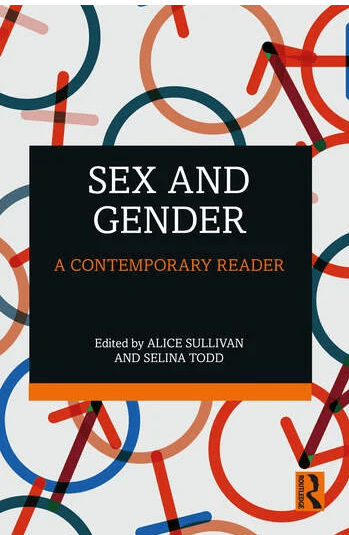
The book aims to explore the relationship between sex, gender and gender identity, and to add some good quality science, research and discussion to a topic that large swathes of academia and publishing have either fought shy of or else amplified the gender identity view, often aggressively excluding all others. For example, when tonight’s presentation was given in Edinburgh, attempts to prevent the audience entering somehow included a protestor grabbing a woman’s ankle. It’s quite hard to imagine the flailings around that could have led to such a thing but, my experience of trying to speak in public about women’s rights leaves me unsurprised to hear it.
It remains a mystery to many how the determination to deny binary sex has become the stance of numerous institutions, despite the fact that if you talk privately to those working within them you’ll find a majority understand that sex is real, is binary, and matters. What’s worse is that many members of the public are still blissfully unaware that the duplicitous behaviour of these institutions is warping the work they do. That’s why this project, edited by Alice Sullivan and Selina Todd, is doubly welcome. It puts back a lot of what has gone missing from academic debate.

The event had a large audience of both women and men, was extremely enlightening and included a glass of wine, some munchies and a free lanyard in my favourite colours. The book is expensive (not expensive for an academic book but, sadly, academic books are well beyond the pocket of most ordinary people) so I will try and give you some of the most useful things I learned from the speakers during the evening.

Alice Sullivan
Alice talked about the fallout of institutions’ failure to deal with the current situation, and the affects it has had. During the course of the evening, she discussed examples such as the contested changes of questioning in the census. As predicted by many women’s rights commentators, the attempts at ‘inclusive questions’ produced by the ONS were not understood by many filling in their census questionnaires. She said Michael Biggs had produced an analysis of the answers and likely reasons for the anomalies but that so far, the ONS has not found the courage to address and correct the situation.
She also gave some advice to those struggling to discuss sex-and-gender issues with those sold on trans ideology. My favourite example was, ‘start with a point of contact’ – for instance, if you’re talking to someone who likes sport and you know a bit about sport, discuss the reasons sex matters there, and what happens when sports organizers are afraid to discuss it.
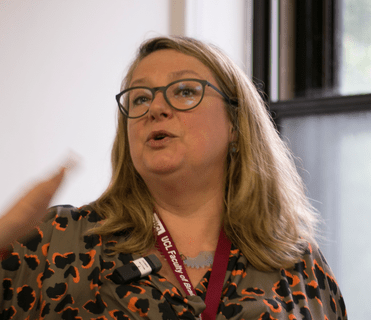
Sophie Scott
Sophie kicked off by saying that one of the few certain differences between male and female brains is that male brains are bigger but, as female brains manage to get more grey matter into a smaller space, there is no difference in computational capacity. She went through several of the widely assumed differences, such as ‘women are better at multi-tasking’ and said that there’s no evidence for most of them. She pointed out that scientists, like everyone else are susceptible to cultural assumptions and that affects what they do or don’t go looking for. She said there are questions to be answered about difference in sexual preferences and related behaviour but somehow, there’s been relatively little research on this. She wondered if, like the more general fear of getting into the sex-and-gender debate, it’s not a ‘nice’ area of study to choose.
Sophie has experienced people working in neuroscience being pressured not to record the sex of participants which, obviously, makes the study of such topics impossible anyway.

Michael Biggs
Michael is best known for his research into the use of puberty blockers for dysphoric children. Two important points his work flagged up were the way the trans focus has denied young gay people and the way the goal posts keep moving. It used to be recognized that most children who became distressed about gender were actually homosexual, but that simply ceased to be said after the year 2000. The second key point is that the claimed usefulness of puberty blockers for gender-questioning children changed over the years, shifting each time a former claim was shown to be doubtful.
Biggs is now of the opinion that it was the creation and manufacture of puberty blockers that led to the invention of the transgender child, and that the trajectory of their use has been largely shielded from scrutiny by the perception of transgenderism as a social justice issue rather than a medical or psychological one.
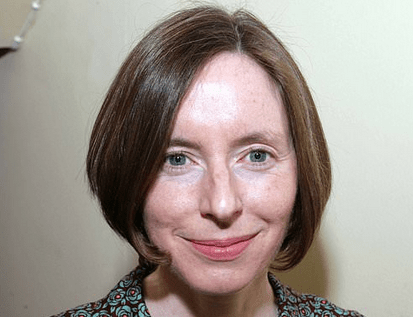
Selina Todd
Selina opened her talk with a tale of her school days. How she and her classmates were sent to find the oldest person they knew to find information for History work. She says she came back realizing how much History matters, and how much women matter. This is reflected in much of the work she has produced over the years. She thinks that the extensive research and campaigning that the women of second wave feminism did is why the UK did not easily accept the whole gender-ideology band wagon. Feminists are used to being informed by the collective experience of women, and are familiar with the idea that working collectively, you can aim to solve the problems of gender by changing society, rather than urging individuals to change their bodies to fit gendered expectations.
She and Alice underlined the fact that we still need more knowledge about the experiences of working class, Black and lesbian women, and that that’s depressingly difficult to do without acknowledging that sex matters. Selina reminded us that we have to keep going in the battle for women’s liberation – that the current stifling of work on sex and gender is simply the latest iteration of misogyny, and that we can fight back with positive work as well as well as endlessly battling the legal attacks on our rights. Her section in the book includes suggestions for researching women’s history, and making a better world for women.
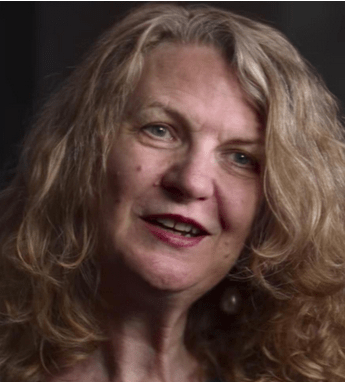
Joan Smith
Joan was the Chair for the evening, and also gave some interesting input to the Q and A session. From which, for me, three points stand out: one was young female academics looking for a place it’s safe to be feminists. One questioner was directed to the GC academia network (do a search – the website’s interesting). Another wanted to know if the ‘GC’ movement was about repealing the GRC (the legal mechanism that allows a person to operate under a legal fiction that they are the opposite sex). The panel agreed that the GRA (Gender Recognition Act 2004) was presented to parliament because same-sex marriage was not legal then, so there is an argument for the idea that it’s no longer necessary, and also that if you read the relevant Hansard pages, there seemed to be no awareness from politicians of the consequences of their actions in sport, prisons, women’s refuges, women’s representation etc. (Don’t panic – there are other ways of providing legal protection for trans people and they are already in place – they are covered in the Equality Act 2010.)
And Joan told us the latest from Stonewall, the organization that I’ve long believed is the source of the worst nonsense about sex and gender. Apparently, the latest oppressed minority they have started presenting in workplace training is aromantic (for people who do sex, but not relationships) and asexual (for people who do relationships, but not sex). The training currently includes the fascinating information that so far, ‘only 50% of these people have declared themselves at work’. Apart from the rather astonishing discovery that it is now considered necessary to make a formal statement of the nature of your sex life at work, this is awkward because as soon as Stonewall declares a new minority, institutions have to come up with a policy for looking after them. It seems to me to be as good an illustration as any of the depth of the rabbit hole identity politics has dragged us into. I was left wondering if there should be a specified set of pronouns for Stonewall’s corporate trainers. If not, may I suggest twee/twit/twoo?
I didn’t buy a book because although there was a discount for the evening, it was still £30 and I couldn’t quite make it. The writers and editors have endeavoured to make the content of the book accessible to the general reading public, and are hoping it will reach beyond university libraries so if you can afford it, buy it. Or if you’re operating at the kind of level I am, don’t give up – there’s a paperback version. When you see it coming around secondhand, grab one.
***NB I now have a copy of the book winging its way towards me. My heart is warmed by the several offers from women reading this. Sisterhood is wonderful! Yes, I am operating at the thin end financially but I tend to talk about the expense of books, and the inability of public libraries to afford academic books, for political reasons as well as personal ones. If you can support women’s blogs with cash donations or books for review, SUPER! But I have this one now, thank you!***

There was far more – in the panel talks, the Q and A and the social chat time afterwards, so if the team are doing a version of the event near you, I definitely recommend going along to hear them.
********************
Dear Reader,
Times are hard, and so the articles on this site are freely available but if you are able to support my work by making a donation, I am very grateful.
Cheers,
Kay
********************
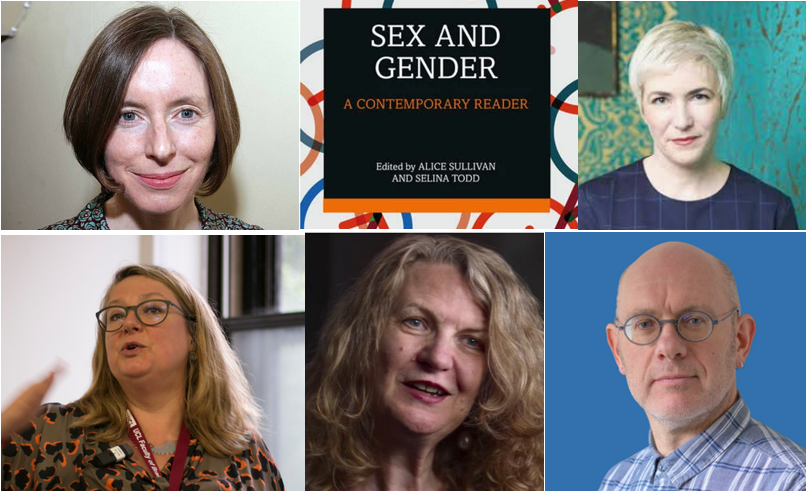
2 responses to “They may not exist but they keep producing good work”
I just sent you 30 pounds so you can buy this book. I am thinking about buying it myself. You’re right, it is expensive. but probably well worth it. Thanks for the detailed review.
LikeLike
Thank you so much! I promise to write about it all over the internet!
LikeLiked by 1 person